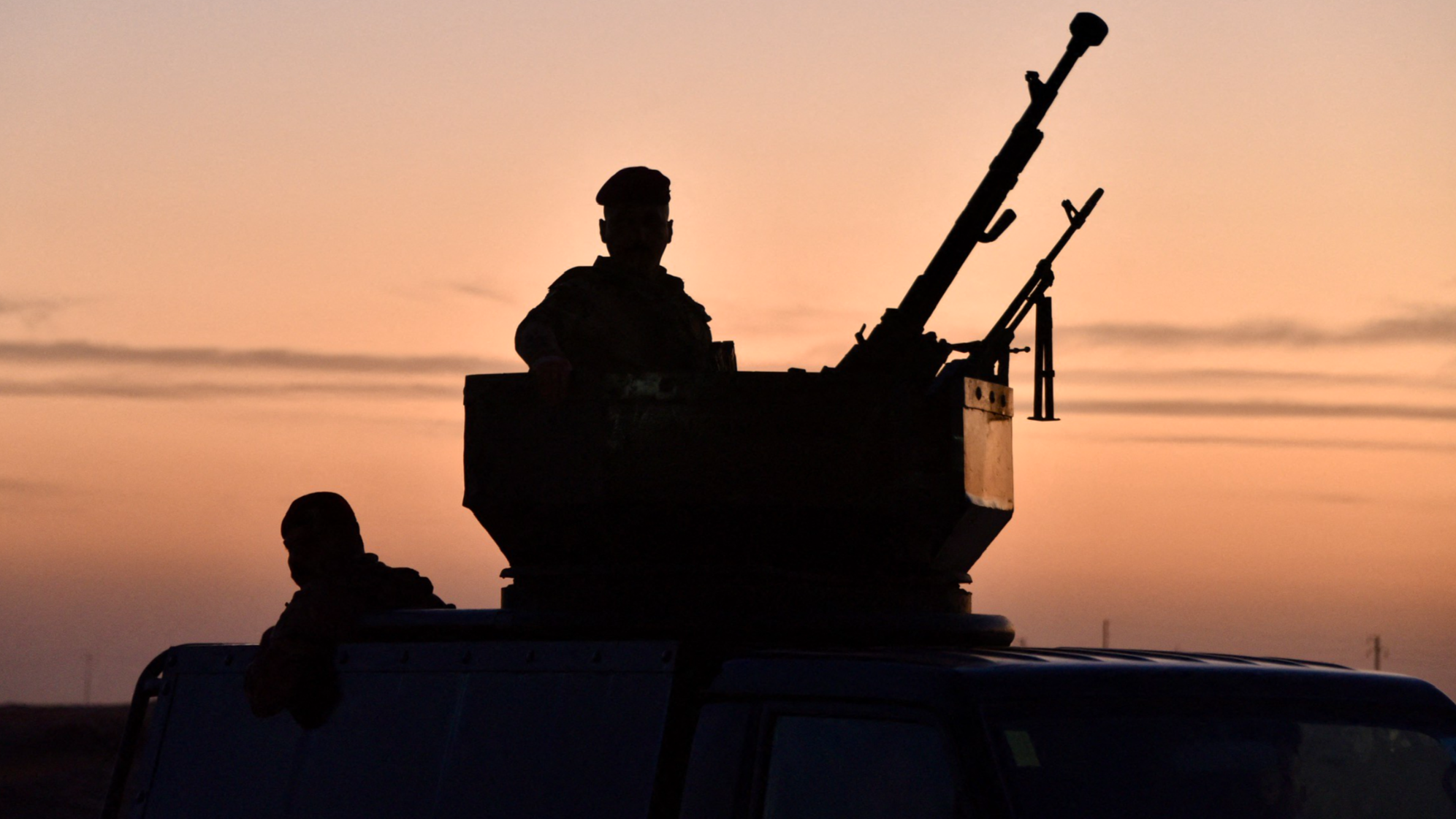
BRUSSELS - Ten years to the day after the formal launch of the US-led operation against the Islamic State, the United States and its NATO allies gathered in Brussels on Thursday to discuss the future of a mission facing increasing headwinds.
Niger kicked out the US military from its counter-terrorism base in West Africa this summer. Afghanistan has been largely off-limits since the Taliban's 2021 takeover. And Iraq wants the Pentagon to start reducing its personnel and end coalition operations there.
At the same time, American officials warn the global threat from Islamic State is growing in Africa and elsewhere, even as public attention has shifted to Ukraine conflict and expanding conflicts in the Middle East.
READ MORE: Yazidis fear returning to their homeland, 10 years after massacre
US Defense Secretary Lloyd Austin, who helped launch the US-led coalition against Islamic State a decade ago as a four-star general, cautioned allies at NATO headquarters in Brussels that Islamic State was still a threat that required international attention.
"But as we do so, we must not lose sight of the threat that ISIS still poses."
Attacks in Russia, Iran
At the height of its powers, Islamic State claimed control over swathes of the combined territories of Iraq and Syria. Its leader, Abu Bakr al-Baghdadi, declared his cross-border caliphate from the pulpit of Iraq's historic al-Nuri mosque in 2014 and vowed to rule it.
Although territorially defeated in Syria five years ago, and seven years ago in Iraq, Islamic State has managed some high-profile attacks while trying to rebuild.
Most recently, those include an assault on a Russian concert hall in March that killed at least 143 people and two explosions in the Iranian city of Kerman in January that killed nearly 100 people.
A 19-year-old Austrian suspected of masterminding a planned suicide attack on a Taylor Swift concert in August had vowed allegiance to the Islamic State militant group's leader.
"It is a threat that is evolving," NATO Secretary-General Mark Rutte said at the talks.
"There is an increase in lone-wolf attacks. Terrorists are increasingly using new technologies and the epicenter is moving southwards into the Sahel, a region which is now accounting for almost half of all deaths from terrorism."

In Africa, jihadist groups with links to al Qaeda or Islamic State have killed thousands of civilians and displaced millions in Burkina Faso, Mali and Niger.
Experts say these conflicts in the Sahel are contributing to a sharp rise in migration towards Europe at a time when anti-immigrant far-right parties are on the rise and some EU states are tightening their borders.
"There's been deliberate efforts (by Islamic State) to try to diversify not only their leadership but some of their combat power to Africa, to Central Asia," a senior US defense official said.
The official, speaking on condition of anonymity, said the US strategy was to ensure the Sahel-based threat doesn't spread south to Ghana, Ivory Coast, Benin, Togo and other countries in coastal West Africa.
READ MORE: IS claims responsibility for deadly attack on Oman's Shi'ite mosque

It will not be easy. The United States is searching for a Plan B in West Africa after Niger's ruling junta in April ordered the US to withdraw its nearly 1,000 military personnel.
In Iraq, an agreement between Washington and Baghdad will see the US-led coalition's military mission end by September 2025, as Iraq turns to more traditional bilateral security partnerships.
The US defense official said the details were being worked out but "all expectations are the footprint will shrink" over the next year. But it is unclear what kind of US presence will remain in Iraq to support operations in Syria, which will continue.


